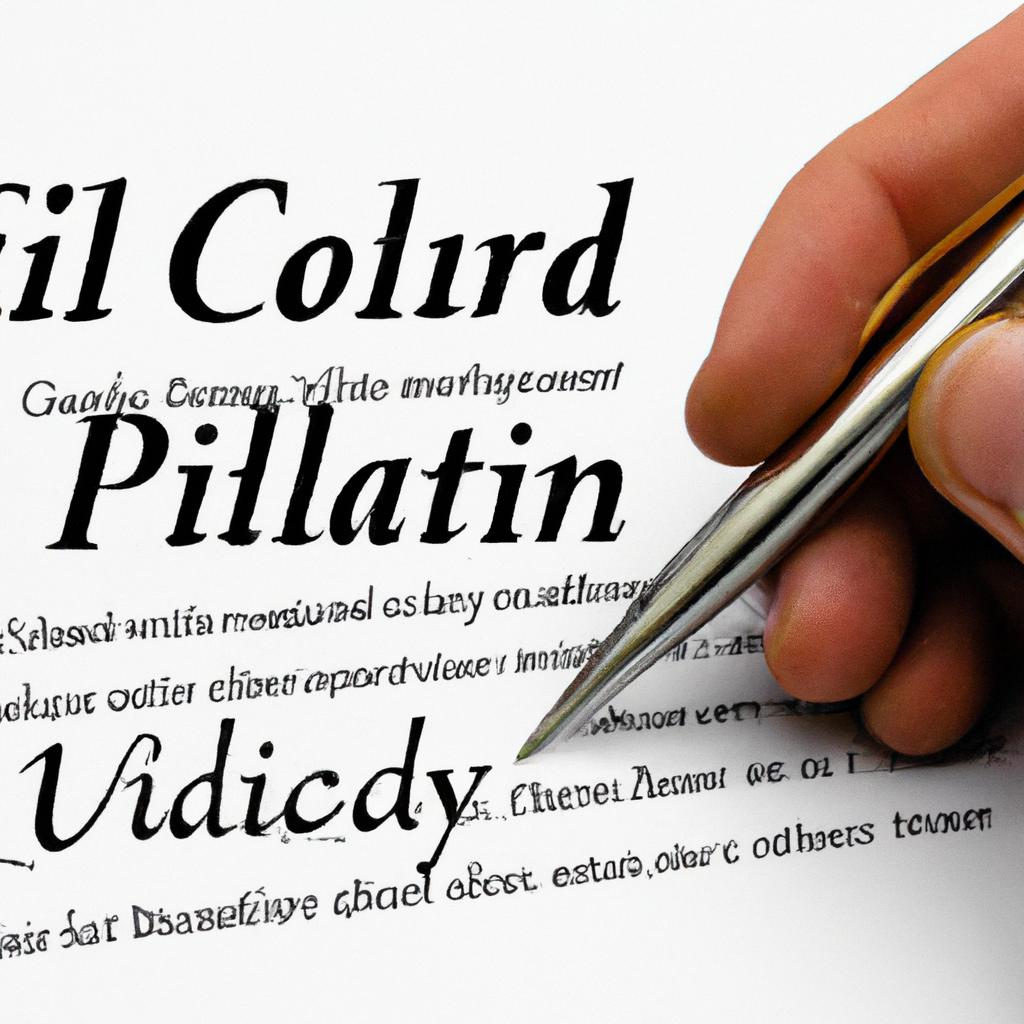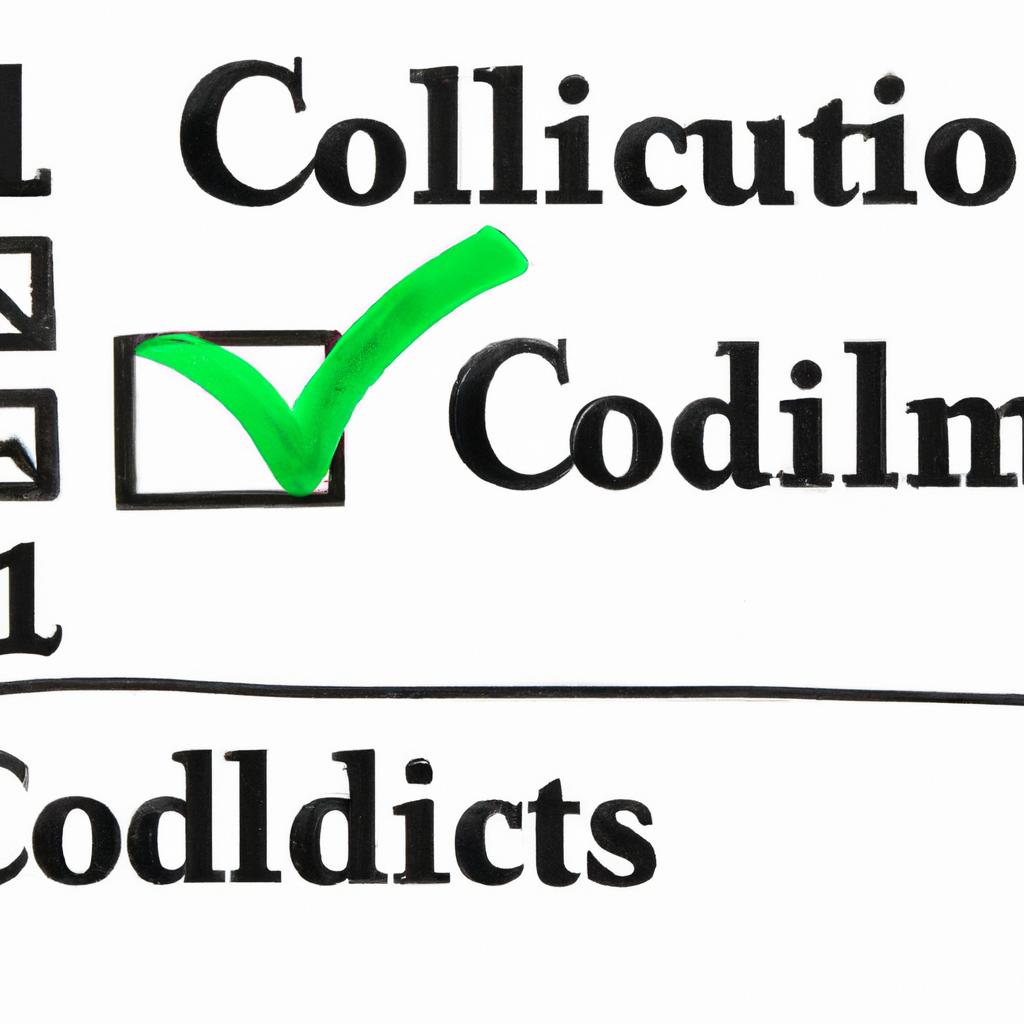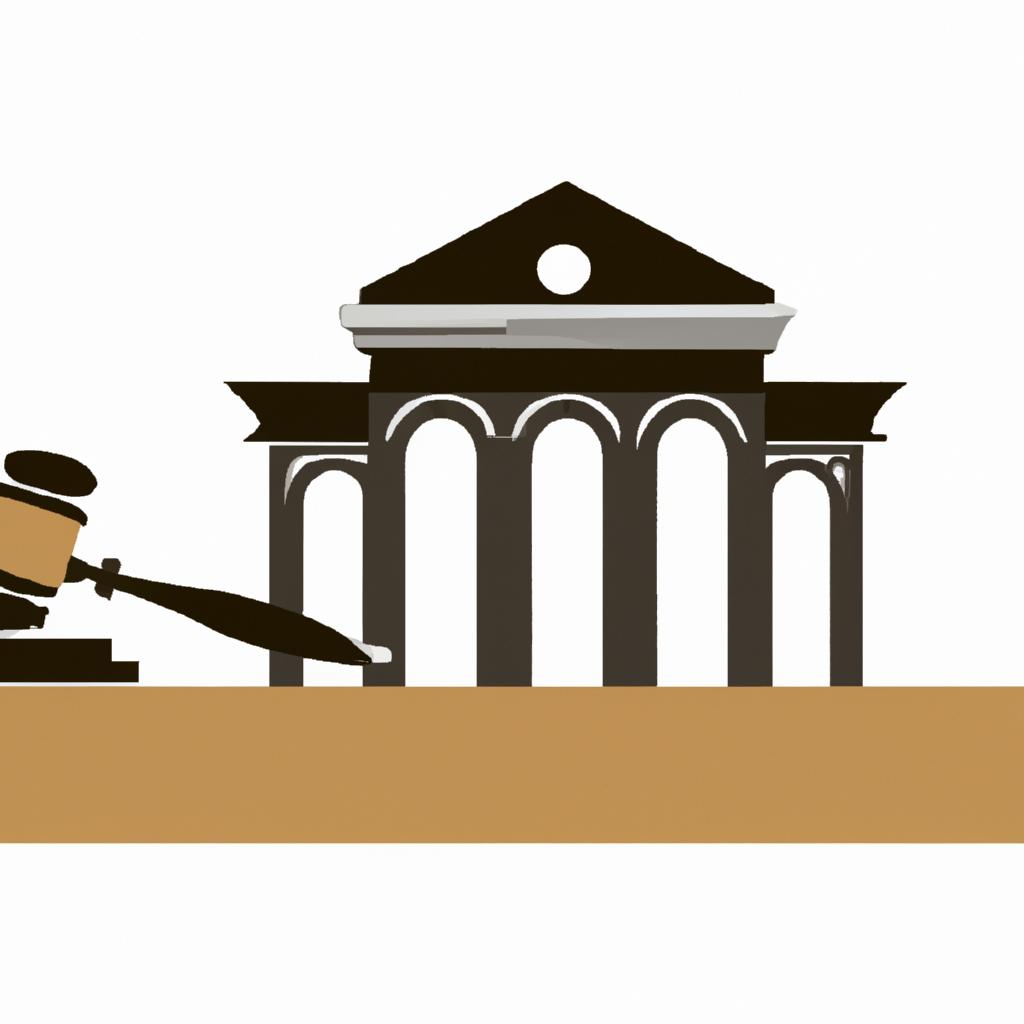In the realm of estate planning and testamentary law, the addition of a codicil to a last will and testament serves as a powerful tool for ensuring that one’s final wishes are accurately reflected and legally binding. As experienced practitioners in the field of law, we at Morgan Legal Group in New York City understand the intricacies involved in crafting and executing a codicil to will. Join us as we delve into the nuanced definition and importance of this often overlooked legal instrument in the realm of estate planning.
Understanding the Purpose of a Codicil to Will
When it comes to estate planning, a codicil to a will is an essential legal document that allows you to make changes or additions to your existing will without having to completely rewrite it. A codicil is a supplementary document that must be executed with the same formalities as a will and is used to modify specific provisions of the original will. It is crucial to understand the purpose of a codicil and how it can be used to ensure that your final wishes are accurately reflected in your estate plan.
One of the main reasons for creating a codicil to a will is to update or change certain provisions of your will that may no longer accurately reflect your wishes. This could include adding or removing beneficiaries, changing the distribution of assets, or updating executorship details. By creating a codicil, you can ensure that your will remains current and reflects your true intentions. It is important to seek the guidance of an experienced estate planning attorney when creating a codicil to ensure that it is executed properly and in accordance with state laws.

Key Components of a Valid Codicil
When creating a codicil to a will, it is essential to include key components to ensure its validity and effectiveness. A codicil is a legal document that modifies or supplements an existing will, providing a way to make changes without completely rewriting the original document. Understanding the essential elements of a valid codicil is crucial to avoid any disputes or challenges in the future.
Some of the include:
- Identification: The codicil must clearly identify the testator (the person making the will) and the original will to which it pertains.
- Intent: The codicil should express the testator’s intent to make specific changes to the original will, outlining the modifications or additions being made.
- Signature: The codicil must be signed by the testator in the presence of witnesses, following the same formalities as a will.

When to Consider Amending Your Will with a Codicil
When considering amending your will with a codicil, it is important to understand the circumstances in which doing so may be necessary. One common reason to amend a will is if you wish to add or remove a beneficiary. This could be due to changes in your relationships, financial circumstances, or personal preferences. Another reason to consider amending your will with a codicil is if you need to update the distribution of your assets or make changes to specific bequests.
It is also advisable to consider amending your will with a codicil if there have been changes in the law that may affect your estate plan. This could include changes to tax laws or regulations related to inheritance. Additionally, if you have acquired new assets or if your financial situation has changed significantly since you last updated your will, it may be a good idea to consider amending your will with a codicil to ensure that your wishes are accurately reflected in your estate plan.

Recommended Steps for Properly Executing a Codicil to Will
When it comes to executing a codicil to a will, there are several recommended steps that should be followed to ensure that the process is done correctly. Below are some key guidelines to help you properly update your will with a codicil:
- Evaluate Your Needs: Before making any changes, carefully consider the updates you want to make to your will and determine if a codicil is the appropriate course of action.
- Consult with an Estate Planning Attorney: It is highly recommended to seek the advice of an experienced estate planning attorney to guide you through the process of drafting a codicil to your will.
- Review and Sign the Codicil: Once the codicil is drafted, review it carefully to ensure that it accurately reflects your intentions. Sign the document in the presence of witnesses to make it legally binding.
| Step | Description |
|---|---|
| Evaluate Your Needs | Consider the updates you want to make to your will. |
| Consult with an Attorney | Seek advice from an estate planning attorney. |
| Review and Sign | Review and sign the codicil in the presence of witnesses. |
Q&A
Q: What is a codicil to a will?
A: A codicil is a legal document that allows you to make changes to your existing will without having to create an entirely new will.
Q: Why would someone need to add a codicil to their will?
A: There are many reasons someone might need to add a codicil to their will, such as changes in their financial situation, family dynamics, or personal wishes.
Q: Is a codicil legally binding?
A: Yes, a codicil is treated as a legally binding document, just like a will.
Q: Are there any restrictions on what can be changed in a codicil?
A: While there are certain limitations on what can be changed in a will, a codicil allows for a wide range of modifications, such as adding or removing beneficiaries, changing inheritance amounts, or updating funeral arrangements.
Q: How should someone go about creating a codicil to their will?
A: It is recommended to seek legal advice when creating a codicil to ensure that it is properly drafted and executed in accordance with state laws.
Closing Remarks
In conclusion, a codicil to a will can be a powerful tool for individuals seeking to make minor changes or additions to their existing will without having to undergo the entire process of drafting a new one. By understanding the definition and purpose of a codicil, individuals can ensure that their final wishes are accurately reflected and legally binding. Whether you choose to include a codicil in your estate planning strategy or opt for a new will altogether, it is important to consult with a legal professional to ensure that your wishes are properly documented and executed. Ultimately, careful planning and consideration can provide peace of mind for both you and your loved ones in the event of your passing.
 Codicil to Will Definition: Understanding the Importance and Purpose
Codicil to Will Definition: Understanding the Importance and Purpose
What is a codicil to will? This question might come to your mind if you are in the process of creating a will or considering making changes to your existing will. A codicil to will is a legal document that is used to make amendments or additions to an individual’s will. It is a vital tool for ensuring that one’s final wishes are properly reflected and executed after their passing. In this article, we will delve into the definition of a codicil to will, its purpose, and the crucial details surrounding it. So, let us begin!
Defining Codicil to Will
A codicil to will is a legal document that is used to alter, modify, or revoke parts of a will that has already been executed. It is a supplementary document that is attached to the original will and is considered to be a part of it. A codicil is necessary when an individual wishes to make changes to the distribution of their assets, revoke or add beneficiaries, or designate new executors.
Types of Codicils
There are different types of codicils, depending on the kind of changes one wishes to make to their will. They are as follows:
1. Revocation Codicil
A revocation codicil is used when an individual wishes to revoke or cancel a specific clause or provision of their existing will. It can also serve as a total revocation of the entire will, in which case, the individual would have to create a new will to replace the old one.
2. Addition Codicil
An addition codicil is used to add new beneficiaries or change the distribution of assets in the existing will. It can also include the appointment of a new executor or trustee.
3. Amendment Codicil
An amendment codicil is used when an individual wishes to make changes or amendments to specific clauses of their will without revoking the entire document.
Purpose of a Codicil to Will
The primary purpose of a codicil to will is to ensure that the final wishes of an individual are accurately reflected and executed upon their passing. It allows for flexibility in making necessary changes to the will throughout one’s lifetime. Additionally, if an individual is unable to create a new will, a codicil can serve as a useful alternative for modifying their existing will.
Benefits of Using a Codicil to Will
Using a codicil to will offers several benefits, such as:
1. Flexibility
As mentioned earlier, a codicil to will provides individuals with the opportunity to make necessary changes to their will without having to create a new one. This adds flexibility and convenience, as creating a new will can be a time-consuming and expensive process.
2. Cost-Effective
Modifying a will through a codicil is often much more cost-effective than creating a new will. This is because the legal fees and time involved in creating a new will are avoided when using a codicil.
3. Preserves Original Will
A codicil allows for specific changes to be made to an original will, while still preserving the validity of the original document. This can be especially advantageous if the original will has sentimental value or if there are specific clauses in it that the individual wishes to keep intact.
Practical Tips in Creating a Codicil to Will
When creating a codicil to will, it is essential to follow these practical tips to ensure its validity and effectiveness:
1. Seek Professional Legal Advice
It is crucial to consult with a legal professional before creating a codicil to will. They can advise and guide you through the process, ensuring that the document adheres to legal requirements.
2. Use Proper Terminology
When writing a codicil, it is essential to use legal jargon and proper terminology to avoid confusion or misinterpretation. This can also help to prevent any potential disputes arising over the intended meaning of the document.
3. Make Sure the Codicil is Witnessed and Executed Correctly
A codicil must be witnessed and executed correctly to be considered valid. This means that it must be signed by the testator (the individual making the changes to the will) and at least two witnesses. The witnesses must also sign the document in the presence of the testator to ensure that they were not coerced or influenced in any way.
Real-Life Example
To better understand the concept of a codicil to will, let us look at a real-life example. Emily creates her will, which dictates that her entire estate will be left to her husband, Mark. Years later, Emily and Mark divorce, and she wishes to leave her assets to her children instead of her ex-husband. Emily can use a codicil to make this change to her will without having to create a new one.
In Conclusion
A codicil to will is a useful tool for making necessary changes or amendments to an existing will. It provides individuals with flexibility, cost-effectiveness, and the ability to preserve the original will. If you are considering making changes to your will, it is vital to consult with a legal professional to ensure that the codicil is valid, legally binding, and accurately reflects your final wishes. We hope this article has provided you with valuable information about the definition, purpose, and benefits of a codicil to will.

